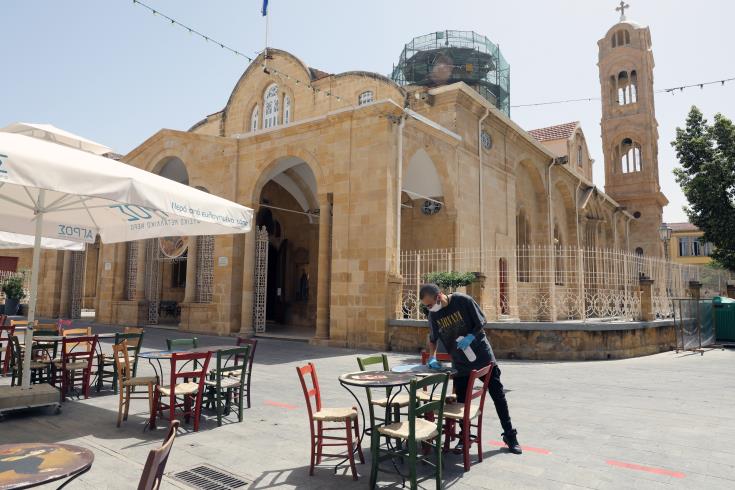Cyprus’ hospitality sector says it’s facing bankruptcy following the government’s decision to close restaurants, cafes, and bars in a bid to reduce the second wave of coronavirus.
As of Friday, restaurants, pubs, and coffee shops will be closing along with shopping malls, cinemas, while churches will remain empty during the busiest time of the year.
Phanos Leventis, of the Leisure and Entertainment Establishment Owners Association, told the Financial Mirror that cafes, bars, and restaurants feeling the brunt of ‘exhaustive’ measures will perish without a generous state bailout package.
“Hospitality businesses have witnessed their revenues go up in smoke over the past few months with the gradual lockdown policies followed by the government,” said Leventis.
He said the association is not opposed to lockdown measures imposed this time around, but restaurants and coffee shop owners do feel that they have been given the short end of the stick.
“We were wrongfully targeted earlier on with previous measures seeing restaurants and other hospitality establishments having to close, initially at 10.30 pm then 7 pm when a 9 pm curfew came along,” said Leventis.
He attributed the stance towards catering services to the fact that a handful of cafes did not follow protocols, resulting in COVID-19 cases appearing at some establishments.
“Could authorities not handle a handful of coffee shops?”
In October, catering venues were first instructed to close at 10.30 pm in Limassol and Paphos, then considered as the virus epicentres with the measure expanding to the rest of the island.
Limassol and Paphos then went into lockdown on 13 November with food businesses, except for home delivery services, had to close until 29 November.
Hospitality will close until the end of the year unless the authorities find the epidemiological data has improved when they revaluate the situation on 23 December.
Leventis argued the new measures have spread anger and disappointment amongst his members for not being consistent.
“Schools are overrun with COVID-19 cases, but we do not see authorities closing them. Instead, we hear them argue that they cannot close them as it would mean parents would have to stay home rather than going to work.”
He said allowing people to gather in churches while restricting the operation of restaurants, bars, and cafes that employ 25,000 people, has created a sense of injustice.
“A sense that different groups of people are being treated differently.”
“What is done is done. For many businesses to survive and be able to open their doors when the crisis is over, the state needs to be generous in its support,” said Leventis.
Businesses in Limassol and Paphos reopened just 10 days ago only to be told they would have shut again.
“These businesses have accumulated debt from rents and other operational costs. The government has been clear in saying that rents will have to be paid but has not expressed any intentions in helping us out.”
The Labour Ministry of Labour said the special support schemes that were implemented in November will continue this month, following the new restrictions.
A prerequisite for the participation of employers is to not to make any redundancies while the amount of support to employees is 60% of their gross earnings, with a maximum monthly amount of €1,214 and a minimum of €360.










